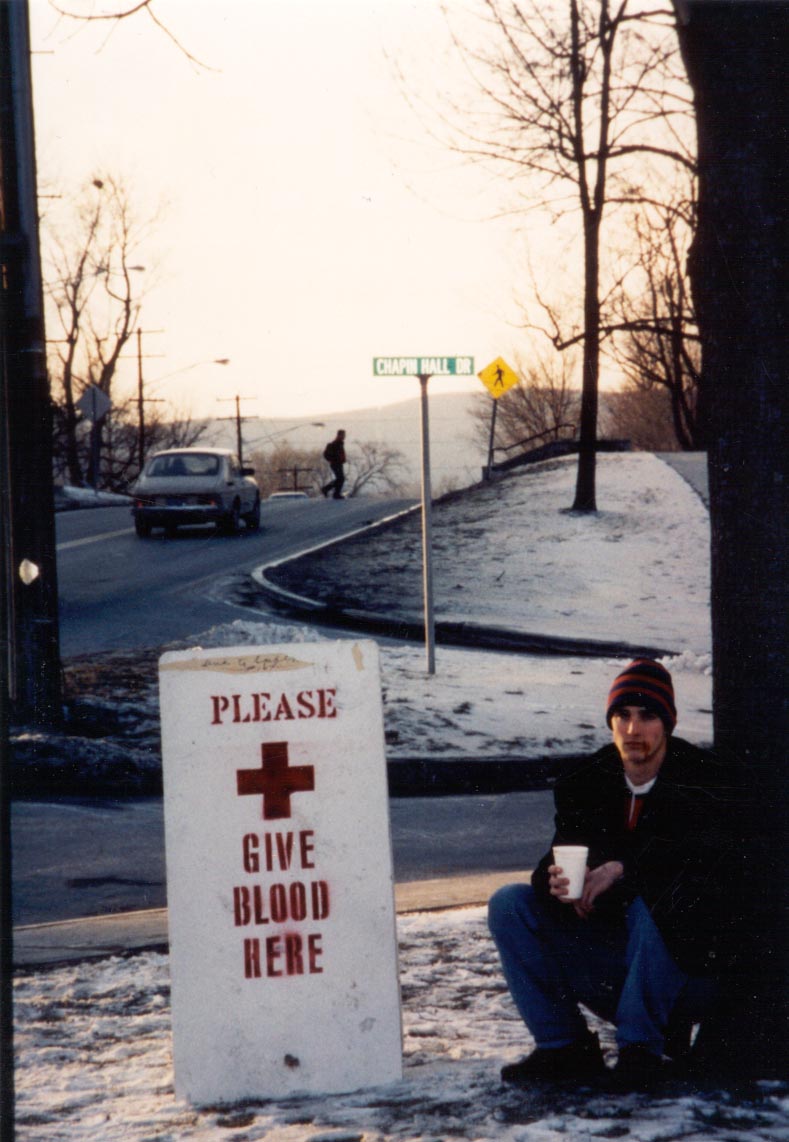
In the beginning, President Bush promised he would save health care through privatization. Today he made good on that promise, signing an executive order that allows medical terminology to be auctioned off to private corperashuns. The companies can make any modifications they wish provided they stay within the high standards of modern advertising.
The medical establishment warns the new arrangement will inject new confusion into an industry which already has plenty. Business totally swears it won’t. A government committee will be formed, and disputes will be settled in the usual manner. Doctors will use idle threats and generalized complaining, while the companies will counter with large sums of cash and an unlimited supply of Hooters wings for committee members, particularly [that chairman who keeps making those innuendos about all the—].
The bidding started only minutes after Bush signed the order. Already several companies have locked in their names. International Business Machines has purchased all forms of inflammatory bowel disease, which will now be called inflammatory bowel misfortune and abbreviated IBM. Crohn’s will be called Clones so nobody will forget just who was there first. And ulcerative colitis will just be ‘lower GI rip-off’. Apple has already got peptic ulcer disease, collagenous colitis and Whipple’s, all of which will be called ‘Yeah Right.’ Compact fractures will be known as Compaq fractures, and thanks to Handspring, anyone with an injury to the median nerve will have a ‘Palms don’t work.’ Kawasaki’s disease will still be called Kawasaki’s, but will be followed by Bob Costas’ voice saying “that was arguably one of the top ten motorcycle maneuvers of all time.”
McDonald’s won the hearts of ad critics (and humorists) everywhere by buying the rights to all forms of ischemic heart disease; myocardial infarctions will be called Big Mac attacks, plaques will be called McNuggets in your arteries and the American Heart Association’s recommended diet will be replaced with a Happy Meal. McDonald’s once again showing that all publicity is good. Xerox just kidnapped three American businessmen in Detroit. They will be holding them for ransom or until interest wanes. Folgers bought gout and will leave the name as is, but change negative birefringent crystals to Folgers Crystals, which company officials were quick to point out will be easier for medical students and television audiences to remember. MTV bought attention deficit disorder and is changing the treatment to an extended release cable package with MTV II through XII (and soon to be released XIII through XX and MTV classic). Pfizer purchased the rights to both Parkinson’s and Alzheimer’s. The two will be merged into one disease, which Pfizer promises to unveil, or cure, by early 2009.
The renaming frenzy also extended into the clinical realm, with several top findings going for huge sums. The anion gap, which measures the difference between a patient’s positive and negative electrolytes, will just be ‘The Gap.’ Patients will, of course, be charged double if there is a trend. Rebound tenderness will be referred to as Reebok tenderness. But Reebok will also change night sweats, explosive diarrhea and preterm labor to Nike sweat shops, exploitation diarrhea and preteen labor. This comes on the heels of two major acquisitions by Nike. First, all nightmares in which the patient is running for their life will be called Nikemares. Second, Nike bought the rights to all advanced directives, the legal documents indicating whether a physician should provide or withhold advanced life support in the event it becomes necessary. The formerly eight page document now reads ‘just do it’ or ‘just don’t do it.’
Patients will never again complain of feeling dizzy. Instead they’ll all be Disney which, everyone agrees, is very cute. Meanwhile, Disney’s arch rival, the company that gave us Bugs Bunny and Wile E. Coyote, has purchased the rights to all twins, which will be called Warner Brothers and Warner Sisters. Not to be outdone, Bill Gates (who, according to a republican—I mean—federal appellate court, does not suck) jumped in with the largest investment so far. People suffering any type of bruise might end up with some Microsoft tissue swelling, which can be easily seen on x-rays, or as they’re now called, x-plorers. Microsoft also worked out a deal with the AMA, so that now anyone unhappy with their diagnosis will automatically be guaranteed a second opinion, which could take up to several years and might even get dropped.
Patients suspected of having the syndrome of inappropriate ADH release will no longer take the traditional fluid challenge test. Instead, they’ll take the Pepsi Challenge, although Pepsico and the AMA are still disputing whether patients must actually be given Pepsi, as opposed to the usual water, for the procedure.

Gall stones were to be called Bridgestones, but the deal was recalled over fears that this could increase the risk of perforation. People complaining of severe abdominal pain will no longer be ruled out for a volvulus, but may, in fact, require emergent work on their intestinal Volvo. And people with severe reflux might be best served by a properly performed Nissan fundoplication, which is how everyone spells it anyway.
Southwestern Bell and Dell both laid claim to the facial paralysis known as Bell’s palsy. A vicious legal battle ensued, but the tide was turned when committee members sided with the large computer maker citing many doctors might be fooled into thinking the disease occurs only in the Southwestern states, like Florida, Texas, and parts of Connecticut. A spokesman for the AMA said of the ruling, “I think Dell’s Palsy is something we can all live with.”
[2001] *Alternate, avant-garde version has here "A Coca-Cola bottle smiled quietly to itself." and an additional setence would read "Meanwhile, kiosks will still be known as kiosks. They will sell magazines, newspapers, candy and sometimes even rolls of film, just film.
Home
- Find out if your disease has already been registered.